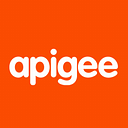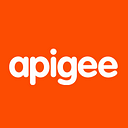Inside Chile’s Healthcare Transformation
By Soledad Munoz Lopez, CIO, Chilean Ministry of Health
At the Chilean Ministry of Health (MINSAL), we understand that healthcare providers throughout the nation must have on-demand access to accurate medical records. It must not matter whether the patient’s record history involves major hospitals or rural clinics — the records should be available when and where they are needed. This is the kind of connectivity on which our healthcare system’s future depends.
Achieving this level of connectivity is a challenge, of course. More than 1,000 of our remote medical facilities, where huge portions of Chile’s citizens receive care, have lacked proper connectivity, for example. The Ministry’s previous efforts to centralize medical records and make them accessible across facilities had been plagued by cost overruns, inflexibility, and delays.
We recognized that to ensure a healthy future for the nation, we needed a new approach.
A New IT Architecture Power by APIs
Years ago, Chile attempted integration of health records via a centralized SOA-based architecture. Completion would have required tens of millions more dollars than the Ministry had to spend.
The search for a solution is now culminating in MINSAL’s implementation of a national API-based architecture, powered by the Apigee API platform. By making data, applications, and services available when and where they are needed, the new approach complements many of the Ministry’s ongoing healthcare initiatives, including establishment of biometrics services, efforts to leverage connectivity for better public alerts, efforts to connect unconnected healthcare centers, and plans to digitize clinical and administrative processes across both major hospitals and local clinics.
Chile’s healthcare records are spread across a diverse environment of sources: different applications, devices, patient record systems, management systems, scheduling systems, etc. Those systems are further fragmented across a range of locations, from hospitals to regional primary care centers. Compounding the complexity, they involve a range of data types, from laboratory results to radiology images. Most of these pieces in the healthcare puzzle were never designed to fit together — never intended to interoperate.
The API-first approach allows us to abstract all of this back-end complexity, masking it with consistent interfaces that allow developers to more quickly and easily connect apps, systems, and data. As a result, the people developing and maintaining healthcare software systems nationwide can work more quickly, securely, and easily. APIs facilitate a more seamless experience for doctors and patients, and an agile yet manageable infrastructure for MINSAL.
The shift makes the national program much more scalable and enables various institutions and healthcare ecosystem participants to evolve their local systems as needed. Our policy at MINSAL is that all data records be based on API-centric standards such as FHIR and HL7. Early results have been so promising that Chile has made the shift from SOA to API-first a national strategy, rather than just an approach for the healthcare sector.
An API Platform for a Healthy Future
Our API initiatives continue to grow and now encompass a wide variety of projects, including a single registry of individual and Institutional Health providers; telemedicine and patient portal services; traceability and management of insurance records; an electronic medical prescription model; and much more.
Looking ahead, as Chile uses APIs to connect data, services, and apps wherever they are needed, the country will be well-equipped to adopt the next generation of healthcare technologies, whether applying machine learning to patient data or investing in self-service capabilities delivered via wearable devices. Because APIs provide a platform for combining software to create new services, initiatives such as public-private partnerships and hackathons promise to take Chile’s health sector in exciting and innovative new directions. For Chileans throughout the country, connectivity will truly be the foundation for a healthy future.

